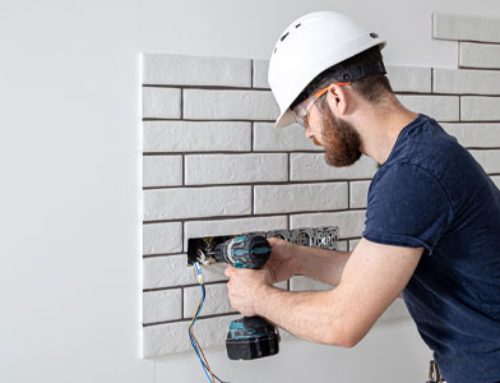In comparison to the difficulty of maintenance, more and more homeowners are attracted to the security and convenience of belonging to a privately regulated community. Perhaps there isn’t an HOA community in your neighborhood, or perhaps starting one has always been your desire. There are various advantages to owning a home, but it also comes with a set of obligations. You could be asking how to start an HOA community, whatever the case may be. Follow this step-by-step instruction on how to start your own homeowner’s association.
1. Analyze the Level of Interest in a Homeowners’ Community
Starting to establish a Homeowners association in your community, you’ll need a lot of support from your neighbors. Local ordinances differ; in some, you may only need a majority buy-in to form an HOA, while in others, you may require the approval of everyone in your neighborhood.
While you’re investigating the possibility of forming a homeowners association, you should also gather feedback on what HOA services people want and don’t want the HOA to provide, and use that data to guide your next actions.
2. Choose Your HOA Activity
You’ll have to make a decision whether the HOA you’d like to form is obligatory for everyone in your neighborhood or if they can opt-out. If you look around and don’t think you’ll be able to garner the support you need to join an obligatory HOA community, you might want to consider forming a voluntary association instead.
Depending on what you want the HOA to perform, this will be easier or harder to implement.
3. Educate Yourself State and Local Laws – and Contact an Attorney if Necessary
When it comes to starting a homeowners association, the first step is to educate yourself on everything there is to know about homeowners associations. This involves learning about any rules and regulations, local or state legislation, and legal steps that must be followed to organize and administer an HOA successfully and legally.
In addition, your HOA will need to employ a lawyer to assist you with the legal aspects of incorporating and administering a corporation. Make careful to consider experience while choosing a lawyer. Choose a lawyer who has previously served on an HOA or is now serving on one.
4. Consider Early Insurance
The majority of homeowners’ associations make the error of failing to properly insure themselves. Investing in insurance to preserve your HomeOwners Association at the early stages of the business is critical.
5. Organize a Team
The people who operate a homeowners association are only as good as the people who run it. The people you bring together to work on this fresh and exciting initiative will have a significant amount of power. Make careful you select a small but powerful group of people who share knowledge, skills, and compatibility.
6. Handle all Documents
This phase can take a long time, but it is necessary for the formation of a homeowners association. The bylaws and CC&Rs are just two of the governing documents you’ll need to write for your HOA (Covenant, Conditions & Restrictions). The CC&Rs are perhaps the most important since they spell out the restrictions that residents must obey and how your HOA must operate.
7. Establish an HOA that is Both Reasonable and Competitive
Maintaining a balance between being competitive with other areas HOAs while keeping fees low enough to be fair. You will, however, be able to establish what is genuinely important to the residents in your neighborhood and build an HOA that meets both of these aims by trial and error.
8. Set Up Your Own Company
It’s time to properly establish a homeowners association and set up the business once you’ve established a solid foundation for your HOA community. The majority of people opt for a non-profit corporation or a limited liability company (LLC).
You will be asked to supply a name for your firm, pay costs, apply for a federal tax number, prepare articles of incorporation, and establish bylaws, among other things, while forming your company.
9. Elect a Board of Directors for HOA
It’s time to elect an HOA board once the company has been created. This is an essential duty because the board will set the tone for the future of the community.
The HOA board is responsible for a variety of neighborhood functions. Among other factors, effective HOA management involves keeping correct financial records, budgeting for operational expenses and the HOA’s future, uniformly enforcing rules and regulations, and preserving communal properties.
10. Hire an HOA Management Company
While employing an HOA management company is not required to start an HOA, it can be quite beneficial. On other hand, the majority of organizations work with HOA management businesses to help them operate it. These businesses relieve the board of directors of their responsibilities, and they are especially important for a newly formed HOA.
The following are some of the advantages of an HOA:
- You will not be responsible for the upkeep of common areas such as the community pool, gardens, or clubhouses.
- The HOA usually provides services such as trash collection, grass care or landscaping, and security.
- An HOA aids in the improvement of curb appeal, hence raising property prices.
- If you have an issue with another neighbor, you can resolve it through the HOA board, which serves as a mediator between and among community members.
- At HOA activities, you can extend your circle and meet new people.
The following are some of the disadvantages of an HOA:
- Renting out your house may be restricted by your HOA.
- As a homeowner, you have restrictions on what you can do, including making alterations to your own land, and you may need board approval before taking action.
The advantages of an HOA are evident and significantly overshadow the disadvantages. Creating an HOA may be a real treat for both you and your neighbors. While the procedure is lengthy and needs some effort, it will be well worth it in the end. Simply follow these guidelines for forming a Homeowners Association community and you’ll be set to establish an HOA that will benefit your neighborhood for many years to come.





